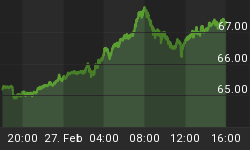U.S. intelligence officials are playing the national security card to repress the American market advancements of Chinese giant Huawei Technologies Co., a major telecommunications equipment provider, sparking a heated back-and-forth over whether the real issue is security or business rivalry.
Huawei is the third-largest smartphone company in the world, after Samsung and Apple, and it’s making a major push to sell phones in the U.S. this year—a push that is being hindered by pressure from the U.S. government.
Earlier this month, the heads of major US intelligence agencies warned American citizens against using products and services made by Chinese tech giants Huawei and ZTE.
The heads of the CIA, FBI and NSA and the director of national intelligence explained it to the Senate Intelligence Committee like this: Huawei is an arm of the Chinse government, they said, and has engaged in corporate espionage to steal technology from U.S. companies. It could also potentially spy on Americans.
No proof of espionage was provided, according to reports.
Huawei rejected these claims, and has been on the reputation warpath ever since.
Richard Yu, CEO of Huawei's consumer business, tells another story—one of business rivalry. He told reporters that competitors are worried about its strength and are using politics to kick the company out of the U.S. market.
"Our competitors are using some political way … to try to kick us out from the U.S. market … they can’t compete with us on product, on technology, on innovation, so they compete with us using politics."
The company has reiterated that it is not sponsored by the Chinese government, nor does it spy on customers through its equipment.
These U.S. intelligence fears have not come out of thin air, though. In 2012, a U.S. congressional report labeled Huawei a national security threat, saying its equipment could allow China to spy on telecommunications networks.
U.S. lawmakers are currently considering a bill, sponsored by Texas-based Republican Michael Conaway, that would ban government employees from using Huawei phones altogether.
Even though this scrutiny is mainly focused on Huawei due its size, other Chinese companies, such as ZTE—which has a smaller U.S. market footprint--could also be affected. Related: Gold Bull and Bear Markets
Smaller U.S. carriers still use Huawei gear, but the report made it politically difficult for bigger ones, such as AT&T., to do so.
The pressure has already started to turn into something tangible. Last month, Verizon dropped plans to sell Huawei phones, reportedly under pressure from the U.S. government.
ZTE already enjoys a relationship with AT&T, which offers the Chinese devices, as does Alcatel, which is owned by China-based TCL.
Apart from years long hostility from the U.S. government, company’s smartphones have proved incredibly successful in recent years. Last September, Huawei even surpassed Apple as the world’s second biggest smartphone maker, behind Samsung.
Other countries aren’t necessarily jumping onto this national security bandwagon to take on Huawei.
After meeting with UK officials in early February, Huawei announced it would invest $4.2 billion in the country over the next five years. It’s also conducting pre-commercial 5G trials in many of the world’s biggest cities in Europe, Japan and Canada.
Officials from other countries have said there is no evidence that Huawei is spying on its citizens.
Australia is the odd man out in agreeing with the U.S. assessment. Last week, the Australian Defense department said it was phasing out its use of Huawei and ZTE phones, used by dozens of department officials.
National security concerns aside, Huawei is gaining on the U.S. market, and it’s creating severe jitters.
While 2017 saw the first-ever decline in worldwide sales of smartphones since 2004, not so for Huawei. It was one of two smartphone makers (the other was China’s Xiaomi) to see year-on-year unit growth and a market share increase in Q4 2017.
By Fred Dunkley for Safehaven.com
More Top Reads From Safehaven.com:
















